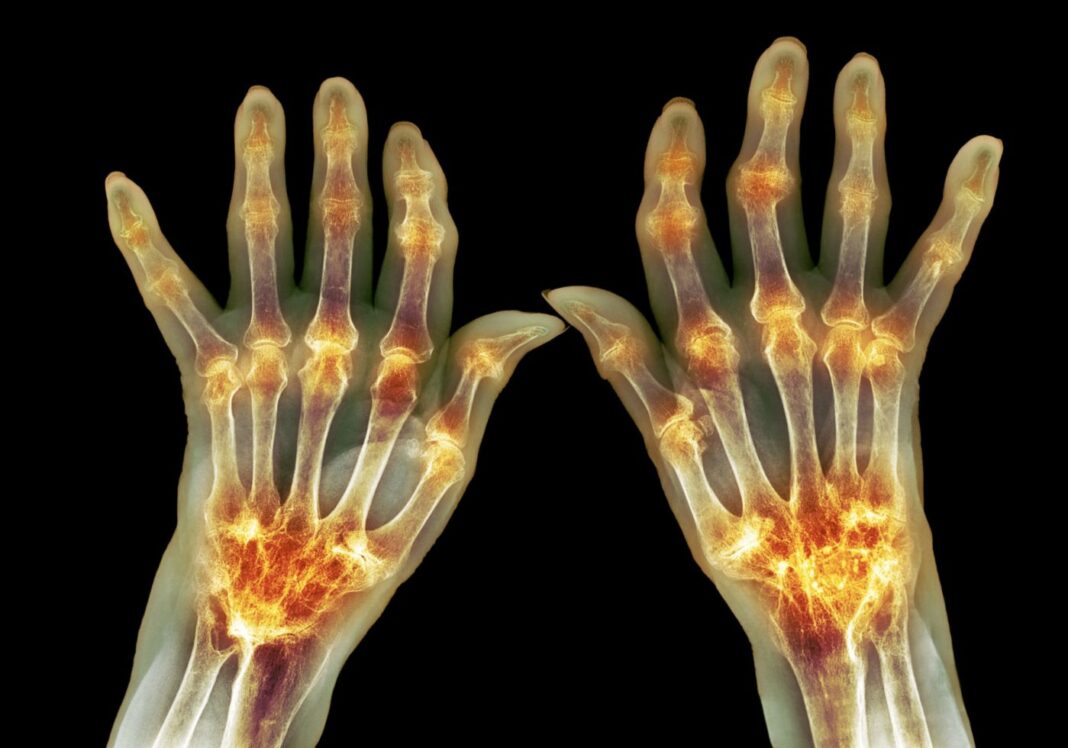Rheumatoid arthritis (RA) is a chronic inflammatory disorder that can affect more than just your joints. In some people, the condition can damage a wide variety of body systems, including the skin, eyes, lungs, heart, and blood vessels. RA affects the lining of your joints, causing a painful swelling that can eventually result in bone erosion and joint deformity. Diagnosing RA early can be difficult because the early signs and symptoms mimic those of many other diseases. Now, researchers from Washington State University (WSU) and Arthritis Northwest in Spokane, WA, report cells from a cheek swab revealed biomarkers for RA that could lead to early diagnosis and treatment before the disease develops.
The new findings are published in the journal Scientific Reports in an article titled, “Epigenome association study for DNA methylation biomarkers in buccal and monocyte cells for female rheumatoid arthritis.”
“Genetics (i.e., mutations) has been assumed to be the major factor in RA etiology, but accounts for a minority of the variance in disease risk for RA,” the researchers wrote. “In contrast to genetics, the environment can have dramatic impacts on epigenetics that associate with disease etiology. The current study used buccal cells and purified blood monocytes from two different clinical cohorts involving Caucasian or African American female populations with or without arthritis.”
“If we can identify these patients ten years earlier before the disease develops, it opens up a whole arena of preventative medicine that we did not have access to before,” explained Michael Skinner, a professor in WSU’s School of Biological Sciences and senior author of the study.
Having biomarkers could allow treatment to begin even earlier before the first signs of it start, Skinner said.
The researchers found epimutations in areas called DNA methylation regions, among the women in both groups who had rheumatoid arthritis. The study was designed to see if there were differences between racial groups since African Americans have shown some signs of increased prevalence of rheumatoid arthritis. However, while some differences were noted, the researchers found a large overlap in epimutations among women with rheumatoid arthritis of both races, meaning the identified biomarkers hold a strong signal for the disease.
“Observations demonstrate DNA methylation epimutation RA biomarkers are cell type specific and similar findings were observed with the two racial background populations,” the researchers wrote. “Rheumatoid arthritis susceptibility epigenetic diagnosis appears feasible and may improve the clinical management of RA and allow preventative medicine considerations.”
“Surprisingly, most of the DNA methylation sites we found that were consistent among patients with the disease were associated with genes previously known to be involved in rheumatoid arthritis,” said Skinner.
“The availability of such RA susceptibility biomarkers will allow preventative medicine approaches to be considered,” concluded the researchers. “The current study provides the proof of concept that such RA epigenetic biomarkers may potentially be developed.”







